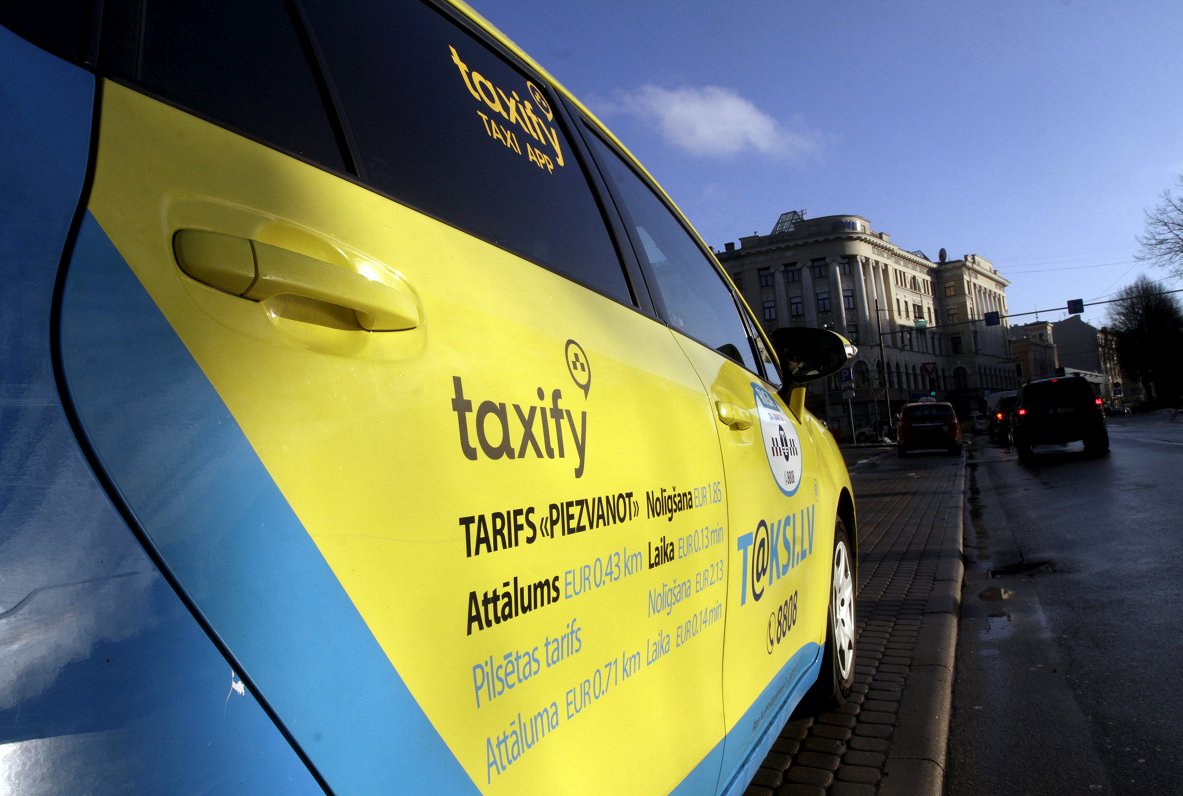"I simply consider it a way to earn some extra money. It's not my main job. It's just that I have quite a lot of free time in winter," a driver using Taxify, a rideshare app similar to Uber, told Latvian Radio.
He said he started using Taxify six months ago, and he can earn about €5/h after taxes, fuel costs and app fees. He said he'd abandon this part-time job should the impending rideshare regulation be enforced.
Currently planned amendments to Latvia's rideshare rules would require each rideshare driver to set up a company, receive two licences and also join the register of licensed drivers.
They were planned by the Transport Ministry, based on Saeima's rideshare law adopted last year.
However the Transport Ministry regulations have turned out to be so strict as to possibly scare Taxify away from Latvia.
"For some reason, [the drivers] can't register with the State Revenue Service as self-employed and pay taxes from their income. [The regulation says] they have to register a company, which is an extra burden. Then they have to get a licence for the company.. then they have to receive another licence for the car. And to receive that licence they have to pay [an advance] social security contributions of €130. Therefore the costs are quite high and drivers will not be interested to work in their free time and carry passengers to get extra income," said Taxify Latvia representative Juris Krūmiņš.
However this is not even the biggest of their problems, Taxify say. Their largest objection is that data from its app should be stored in Latvia.
"Taxify operates in 25 countries and none have such requirements. We store data in a single country, in Germany where our servers are. That's how all global companies operate. They don't store data separately in each country, as it's very complex. In order for us to do that, we would have to completely change the architecture of the platform, which we obviously won't do for Latvia," said Krūmiņš.
Edvards Smiltēns (Regional Alliance) says the new regulations would amount to rideshare services being made equal to taxis, in the eyes of the law.
"We're supposedly introducing a modern thing, but in subtle, very nuanced ways.. they are trying to make this idea completely useless," said Smiltēns.
Meanwhile Tālivalds Vectirāns, the director of the Traffic Department at the Transport Ministry, says that the regulations would fit the rideshare law adopted by the parliament, and that these amendments would serve to regulate the way how commercial entities serve traffic.
While the rule that would have data stored on Latvian servers was a demand by the State Revenue Service. Service representative Sandra Kārkliņa-Ādmine said that it would ensure the service would have access to data, otherwise it would have to request it via a lengthy international procedure.
However, the service seems to leave room for maneuver.
"Taking into account that the regulation has not been adopted yet, I wouldn't want to say we're completely insisting on these requirements," she said.





























